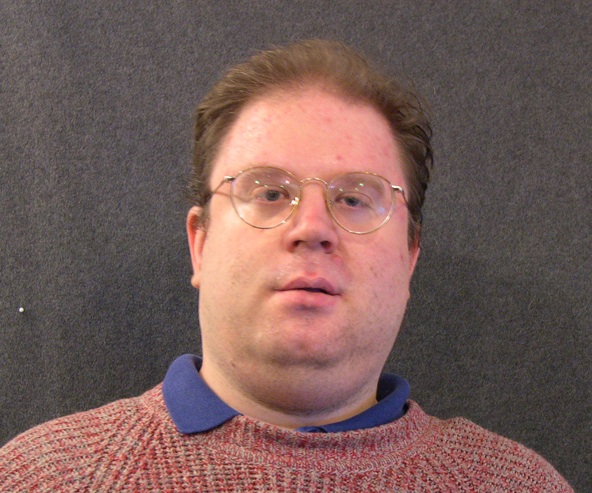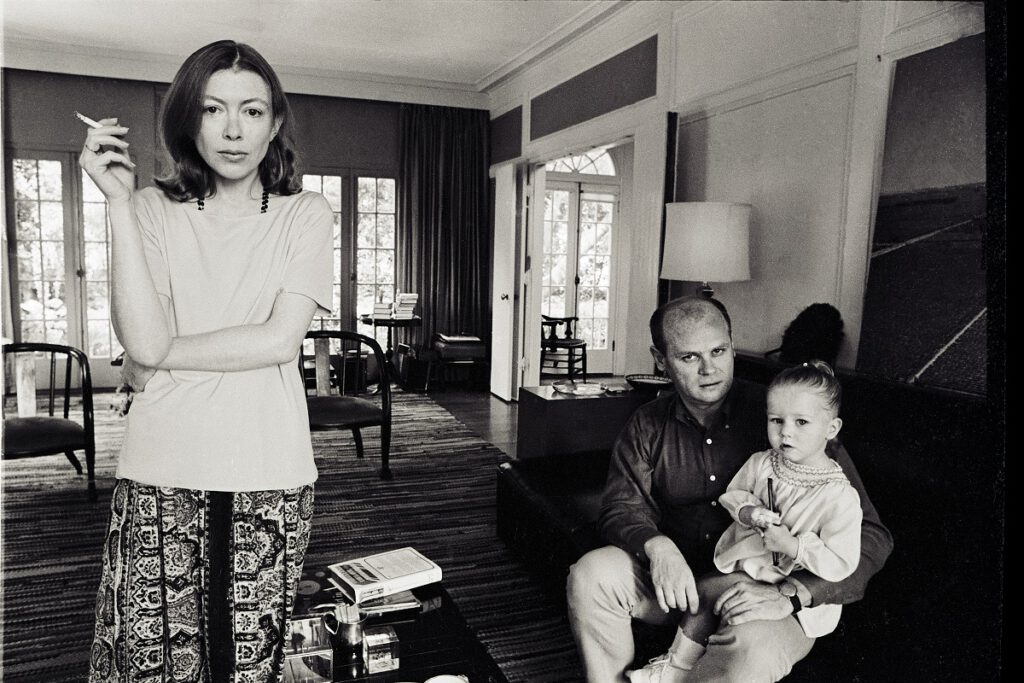Griffin Dunne’s documentary “Joan Didion: The Center Will Not Hold,” which opens October 27th at the Metrograph in New York and starts streaming on Netflix then, is an unusually personal and close-up look at one of America’s greatest writers. While relatively formally conventional and reliant on talking-heads interviews, it inserts Dunne himself into the picture: Didion is his aunt, and he is often seen onscreen interacting with her. Without hitting the obvious series of points, it tells the history of her life and work, which includes chronicling the faults of the ‘60s counterculture and finding a new level of fame by telling the story of her husband John Dunne’s death in The Year of Magical Thinking. She has demonstrated a rare ability to go back and forth between novels, essays, screenplays and memoirs. With his first documentary, Dunne, who has alternated between acting, production and making narrative films, shows his own skill at doing justice to her varied talents.
Did it make you nervous to direct a film about a family member?
Very much. Not just a family member. But someone who a very large body of people have a connection to and who has identified the way they live their lives and the professions they’ve chosen. You take on a subject that most people feel ownership in. The fact that she’s my aunt only added to that factor. I showed her my film long before I showed it to anyone else: the studio, my financial backer. I had a three-hour cut. Just so she could see how it was shaping and say “I hate it” or put my mind at rest. It was obvious how much she loved it and appreciate it and all the work that went into it.
Well, it began as a promotional video for her book Blue Nights and then you started a Kickstarter fund to expand it.
It became apparent I needed a serious amount of money to get the music, archival film and the shooting days required. And despite hitting our goal in one day on Kickstarter, it still wasn’t enough. We made a trailer for Kickstarter, which went viral. It went far beyond just being a documentary about a writer. A lot of people really wanted to see this movie. The interview requests came from all over the world, from Japan and every country in Europe. The interest in this movie has been unlike anything I’ve ever been involved in.

How does she feel about the way she’s become especially iconic after The Year of Magical Thinking?
It’s a bitter irony that her greatest success couldn’t be shared with the man she loved. It wasn’t intended by Joan to provide comfort to others. She wrote it to understand the world of grief she was in. Even her publishers underestimated its popularity. It was read by so many people who all shared loss in common. It brought her an entirely new audience as well, a younger audience who went back and read her other books. When Blue Nights came out, I saw a 15-year-old girl on the subway who was engrossed in it. I went up to her and asked how she liked it. She said, “I’ve read everything she’s written since The Year of Magical Thinking...” There’s a lot more. That was her new audience.
You’ve directed five narrative films, but this is your first documentary. Are you interested in continuing with the form?
I can’t wait to work with a script, where I know how it begins and ends. It was an incredible experience, but my history and experience has been with narrative. Part of what humbled me is that I loved every day of editing, but three years of that, with all the shooting and interviews…you know what you want with a narrative film and when you get it. I never knew when I got it. I never felt I had it. I never knew when to move on. I’d like to do a narrative next. I’d be happy to do a documentary depending on the subject. The strength I had going into this documentary was being so close to the subject and the fact that it was such a personal story for me. I’d like to find something that’s not necessarily documentary but is still emotional for me.
There’s a film coming out next year about Gore Vidal in which you play Leonard Bernstein. What was it like playing such a legendary artist?
There is a lot of footage to work with and to study. I could copy his voice. I already had the hair. My hair is already graying, When I went into makeup, they would just spray gray on top of my own gray. But it was really fun. It was a particular time in Lenny’s life, where he was on vacation and relaxed but also a little tormented about his own legacy and moody.

Joan wrote essays about film and screenplays, and a film was based on her book Play It As It Lays. Did she have a particularly critical reaction to your film as a result?
Did she offer notes or anything? When I showed her a cut, I would record her on my iPhone and talk about it. She didn’t really have any criticisms. I don’t think it’s in her nature to tell me how to make a movie any more than I would tell her how to write a book. Everything that’s in the movie really happened to her. No matter how personal or painful it is, she stands by it, so there’s nothing that made her say “I want you to take that out.”
You talk about her politics, particularly in the ‘80s. I know they were more conservative before that point, although they’re maybe only reflected in her published work in the essay attacking feminism. That doesn’t really make it into the movie. Did you feel any trepidation talking about that?
I did. She grew up in Sacramento in a very Republican area. Her family were stock Republicans. Joan even voted for Goldwater. She’s had a real evolution from that. But I think it’s much more about being Californian and having the DNA of a Westerner, a frontier spirit that survived crossings without any government interference. That’s the environment she grew up in, and it affected her deeply as a young girl. When she met John, he had the exact opposite politics. Her politics morphed in a different way.
Throughout your career, how do you think you’ve balanced work as a producer, actor and director?
It’s never been easy. I really like working, and I don’t act a lot. I can’t rely on just acting. It’s work that comes from outside sources. I find that really unsettling. So as a young actor, I created my own opportunities by optioning books. I was very happy producing and working with directors like Lasse Hallstrom, John Sayles, and Martin Scorsese. I got a chance to learn a lot about filmmaking and acting by being with those guys.
How did you go about choosing interview subjects like Hilton Als for this film?
One of my favorite interviews with Joan was conducted by Hilton in The Paris Review. There was a back and forth, with a real ease with each other. I asked for the audio, which The Paris Review provided. His spirit and enthusiasm for Joan, and the written word, were a great asset. I ended up with David Hare. I talked to many other people who didn’t end up in the film because they just talked about her work in an insightful way but also had a personal relationship to Joan. I was wondering how I would have a personal voice for the readings Joan didn’t do. That led to having Hilton and David do parts of it.












